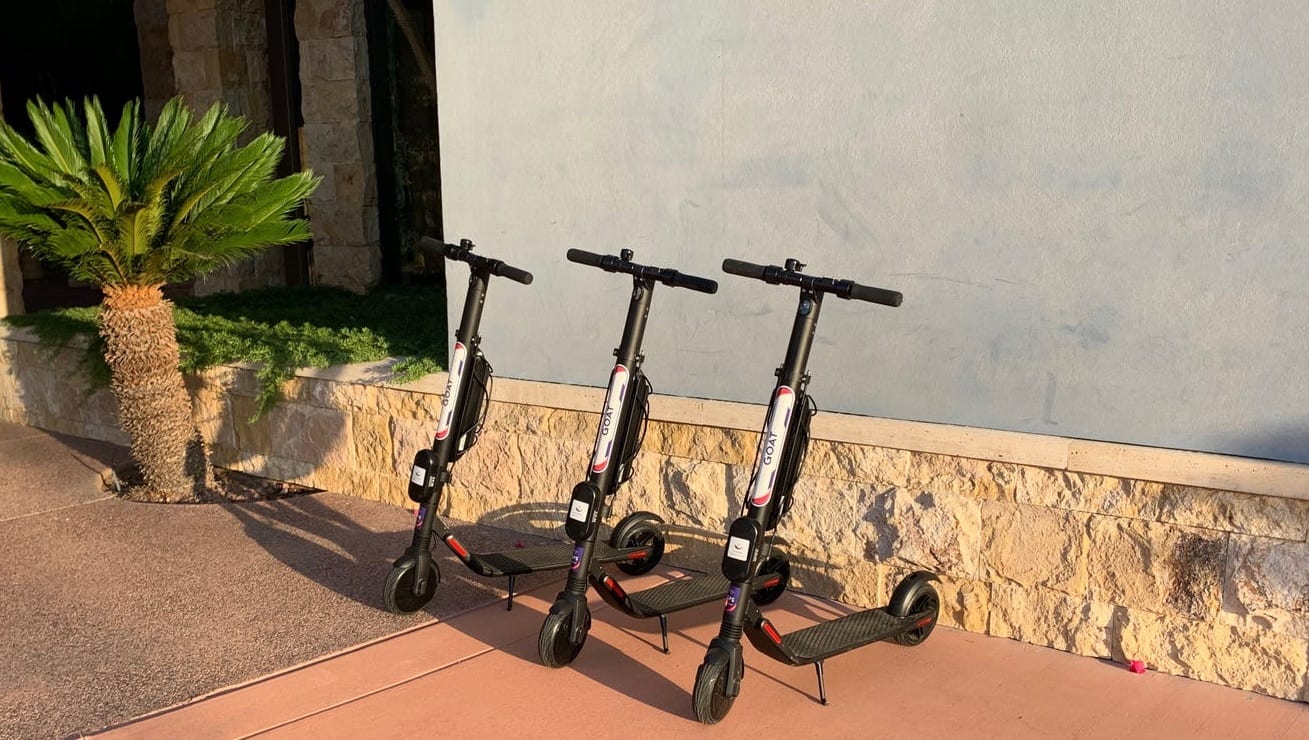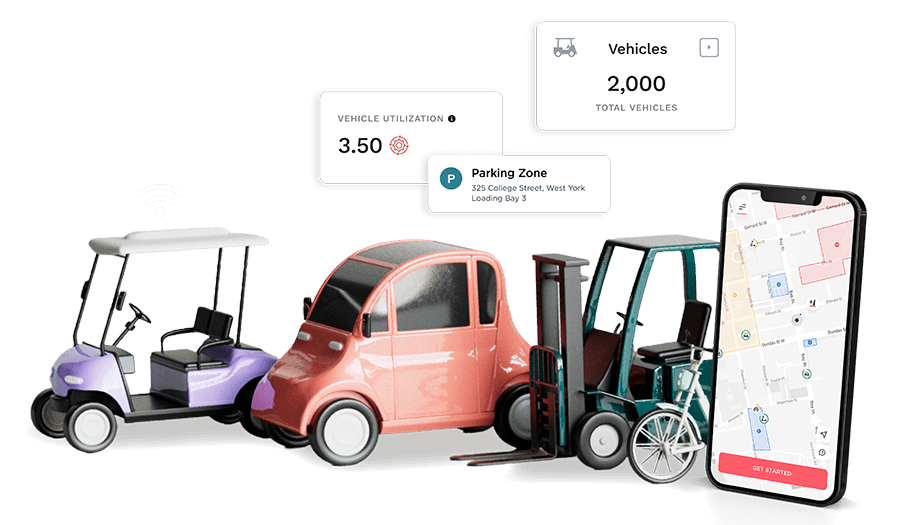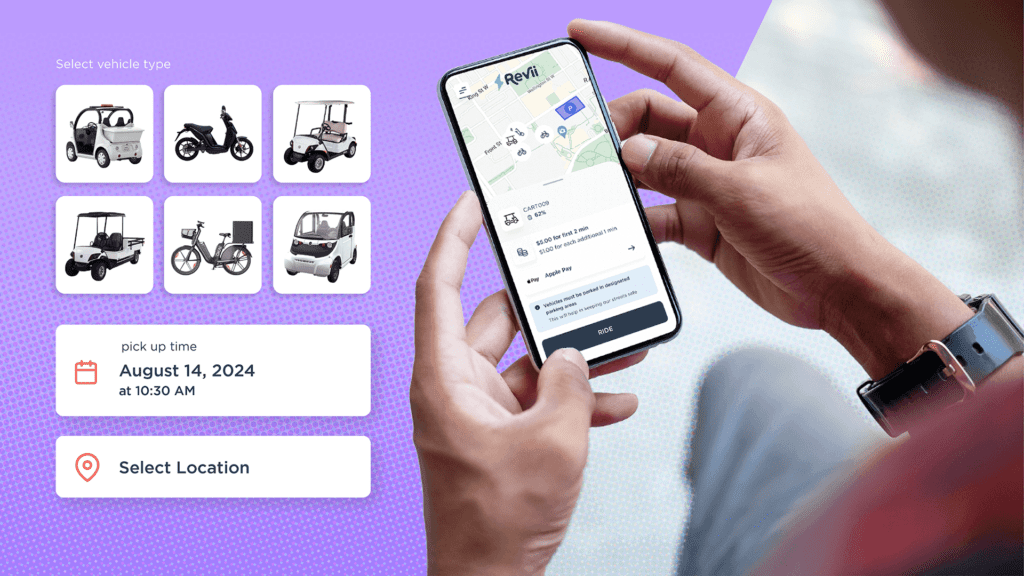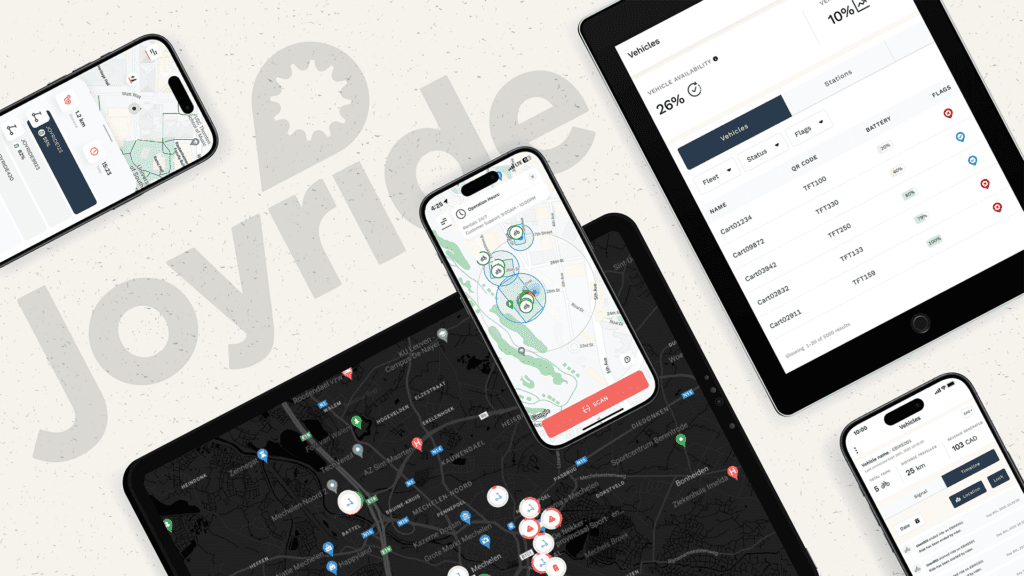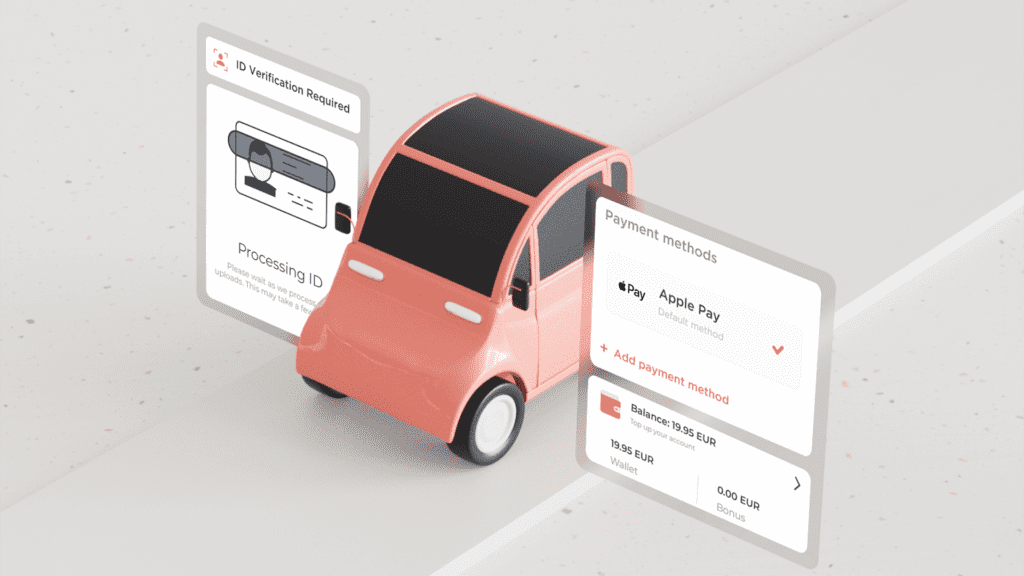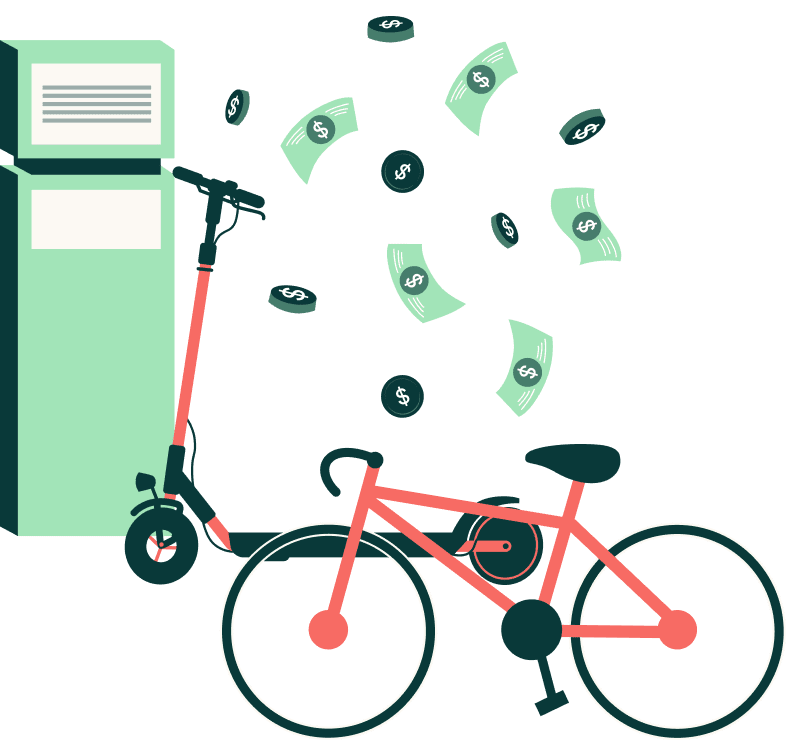This year, we’ve watched a number of mobility operators use Joyride software to either adopt or amplify business-to-business (B2B) models to not only meet a new kind of demand from the micromobility industry, but actually grow because of it. Especially now, as consumer ridership is fragmented in certain locations, the prospect of launching (or pivoting to) a private B2B model is appealing. By providing their fleets or rental services directly to another business—such as a hotel, college campus, delivery system or franchised network—B2B operators are securing steady revenue streams without being tied to individual end users or the logistics that come with public fleets.
So what’s the best B2B route to go? Here, we’ve highlighted the four top options that are paying off for shared mobility operators.
1. Franchising
A franchise model doesn’t have to be complicated, and it offers many benefits for both established operators and prospective ones. With a franchise, you are a parent company and your customers are other micromobility businesses that rent out vehicles under your brand name and through one streamlined platform. Using our software, operators franchise their brand by adding unlimited scooter-share and bike-share franchisees all through one backend dashboard. Each of these multiple franchisees then has its own customized dashboard and user app under the franchise umbrella. The model creates a turnkey solution for operators to scale their businesses and it gives franchisees immediate access to all the hardware, software and branding they need. It also gives businesses a greater opportunity to compete with multi-billion-dollar companies by significantly expanding their fleets with minimized risks.
This is the case with GOAT. Headquartered in New Jersey, GOAT’s micromobility network uses a pseudo-franchise model, providing its 30+ scooter-share customers with the ability to operate under a licensing agreement. Entrepreneurs who launch a GOAT-branded scooter-rental business with fewer than 50 scooters will pay a 20% monthly licensing fee, and the percentage gets to as low as 10% as fleet numbers rise (up to 300 scooters or more). GOAT also charges an operational fee of $8.50 per scooter per month.
“We lean into the local strategy and focus on independently owned and operated fleets. There are large and wide markets out there, and they’re not always in the most popular cities,” says GOAT CEO David Nazaire. “We give entrepreneurs the tools they need to launch in cities that may be small but have active downtown areas, and these businesses have the freedom to partner with their own local companies and advertise with them using Joyride software.” Nazaire says his company is experiencing significant growth this year in terms of franchisees, despite the changing landscape of COVID-19, with strong interest also coming from outside the U.S. in places like Puerto Rico and Cyprus. Just as GOAT benefits from a B2B business structure, Nazaire says many of his operators are also going B2B and not just renting vehicles to the general public. “There can be layers upon layers in the B2B world,” he adds.
2. Hotels
While global tourism has been significantly impacted by COVID-19, local travel is still thriving in certain regions. Hotels are in a particularly unique position to offer their guests safe ways to get around their cities (without the use of public transit) and venture into surrounding areas through bike or scooter-based excursions. In a successful hotel B2B rental model, an operator will provide a hotel or hotel chain with a series of vehicles, which are then rented directly by guests using the white-label rider app. The hotel will pay a predetermined fee to the operator, and the operator can supply all vehicle-tracking software and payment management. For the hotel, this system eliminates the headache of sourcing hardware, setting up a rental/payment system, worrying about tracking vehicles and having to employ multiple people to oversee the program. For operators, this model provides direct access to consistent renters while only having to communicate and appease one real customer: the hotel itself.
Of course, syncing with an entire hotel chain is an optimal scenario. For example, FLOWBikes in Portugal has an exclusive partnership with the Selina hotel chain, which rents out vehicles under the Selina by FLOWBikes name. FLOWBikes launched this year, mid-pandemic, and the choice to partner with a hotel chain has proven to be a recession-proof one. “The hotel model has a great advantage since it lets you tap into a demand that’s already there,” says FLOWBikes co-founder Jose Maria Abecasis Soares, who recently spoke in more detail about his company’s model. “The Joyride platform is perfect for what we are doing, and for the hotels it makes the renting process so seamless. Everything is virtual; there are no front reception logistics involved.”
3. Corporate and college campuses
One of the main perks of a B2B model is avoiding the process of obtaining a city permit. More of our operators are seeing how easy it is to offer their services to corporate companies and campuses, which in turn rent out to vehicles to their employees or students. Again, this guarantees a steady stream of rentals while also spreading brand power among a large group of people. Providing vehicles to campuses also helps these institutions give employees or students a safe way to travel beyond using public transit.
Launched in 2019, Blip Scooters is a New Zealand-based B2B mobility company that provides scooters to corporate offices. Essentially, each company has its own “shared” fleet. Operating on Joyride’s software platform, Blip’s services include maintaining, charging, repositioning and managing e-scooter fleets and their users.
“A lot of corporate offices are eager to swap their traditional car fleets with e-scooters, especially those that have multiple employees going on short trips around the city,” says Blip Scooters co-founder Ahmed Al-Jumaily. “The problem we found was that corporate offices can’t rely 100% on city-run shared schemes due to lack of on-demand availability. Our Blip-to-Business scheme offers businesses something they can rely on 100% of the time, at reduced costs. And for Blip, this means we experience an ongoing stream of revenue.”
4. Deliveries
Typically, B2B operators can rely on fewer clients than consumer-focused ones because of the amount of money a single business customer can generate. Think of this in the case of renting out vehicles to food-delivery drivers. In many instances, a fleet owner can have only a handful of ongoing drivers in his or her network that will rent scooters on a recurring daily basis—or for longer periods of time using our Joyride Keep extended rental platform. Food-delivery apps like Uber Eats and Skip the Dishes are seeing more than double year-over-year growth due to the global pandemic and stay-at-home orders, resulting in a heightened demand for drivers.
Under a B2B delivery model, operators typically rent out individual bikes, e-bikes or scooters for a daily flat rate (approx. $30/day) through their white-label app, and then these drivers use the vehicles to fulfill their delivery orders and commitments for whatever contract they have in operation. Using Joyride’s backend management system, operators set specific geofencing parameters for the drivers, ensuring vehicles automatically slow down or stop if they steer beyond the parameters. If there’s any issue in terms of vehicle support, notifications are all made through the user app, too. With lockdowns intermittently happening across the globe, this model provides a viable way for mobility businesses to stay in operation while also providing much-needed services (and revenue) during this time.
The founders of these B2B businesses may have different approaches and area codes, but they all implemented models that have kept their companies in demand even in an uneasy economic climate. As a B2B SaaS platform, we have more to say about the steps and software it takes to launch a business-first fleet. Contact us here for details.

